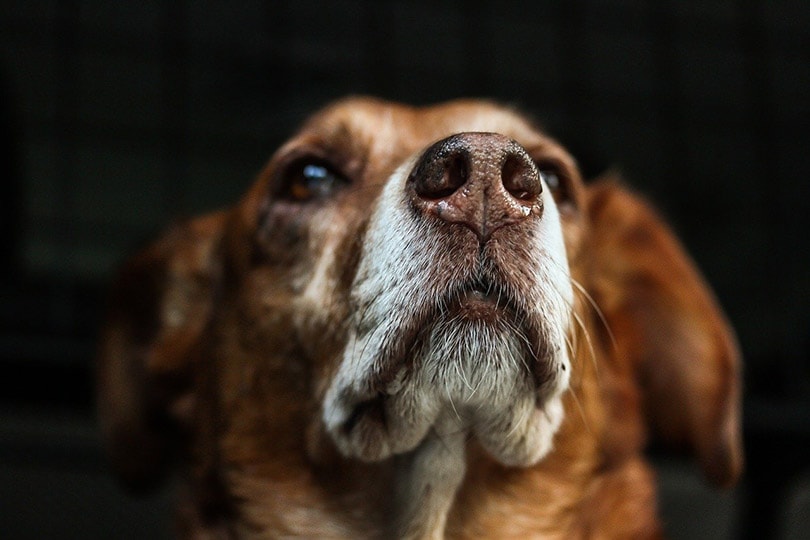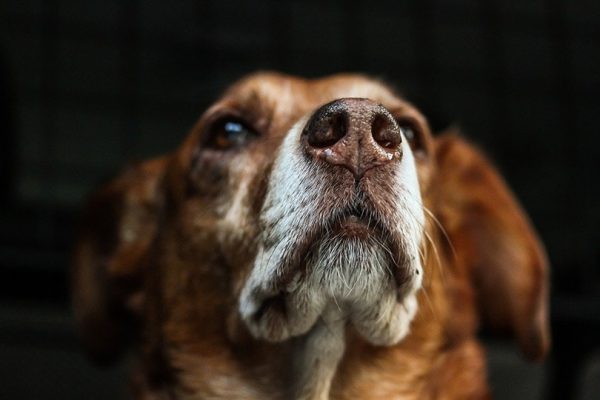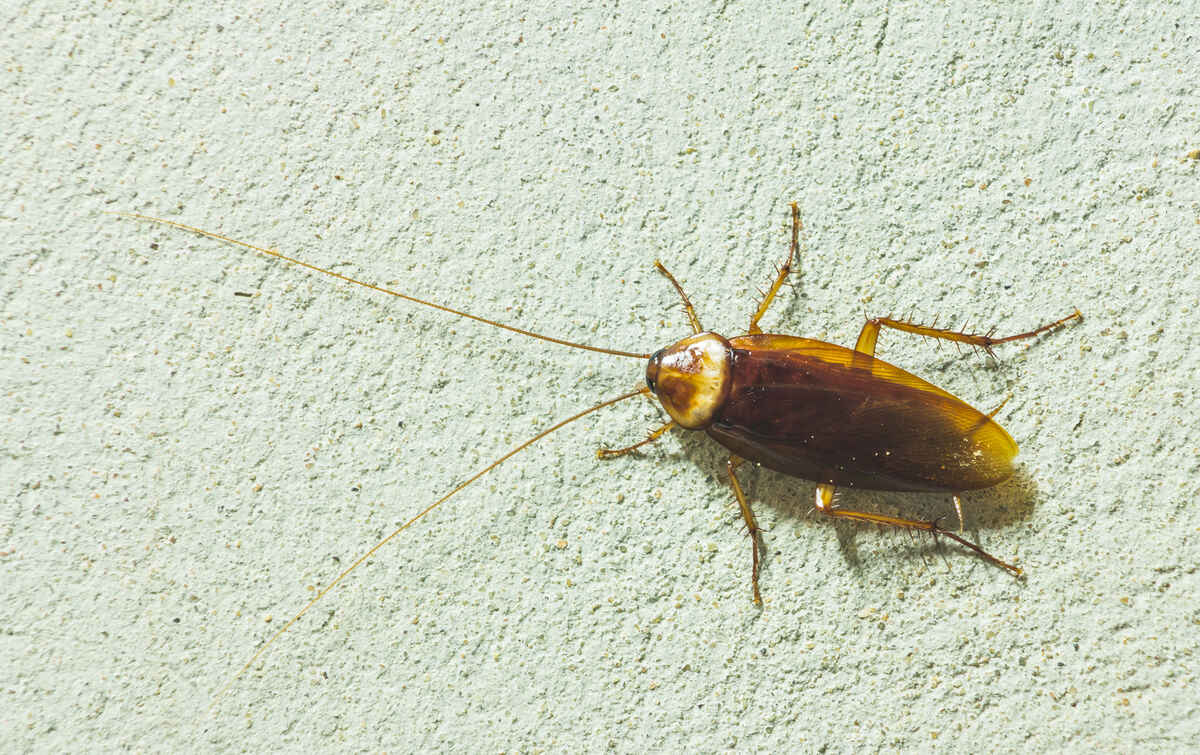Most of us understand the dangers of sunburn when it comes to humans. It’s not only painful, but it enhances the likelihood of developing certain conditions like skin cancer. However, many owners overlook the potential danger of overexposure to the sun for their dogs. Dogs can also suffer from sunburn in places such as their nose. They can suffer from sunburn in those areas where they have less hair covering their skin or where the hair is light enough that it lets harmful UV rays through.
The nose is one such area because it is in a prominent position and the coat tends to be thinner in this area than on the rest of the body. If your dog has thin or light hair around the nose area, you should consider applying sunscreen. Some non-fragranced children’s sunscreen can be safe for your dog, but we recommend buying sunscreen that is designed specifically for use on dogs.
Causes of Sunburned Noses
Sunburn is caused by too much exposure to ultraviolet light in the sun’s rays. Damage is caused by UVA and UVB rays, and even if the damage isn’t visible, it doesn’t mean that it doesn’t exist. Damage can be done to the DNA beneath the skin, and this can lead to skin cancers like melanoma and squamous cell carcinoma. This is true in dogs as well as in people.
All dogs can potentially suffer from sunburn, but it is most often seen in dogs with a light-colored coat or with thin or bald patches.
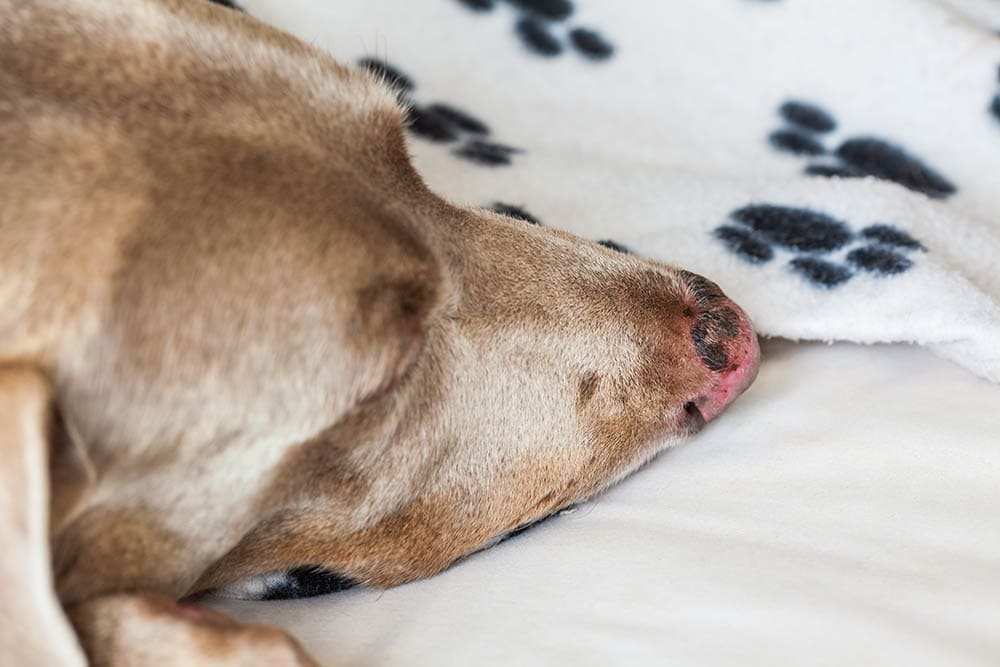
Signs of Sunburn
The nose, ears, belly, and the end of the tail are some of the most susceptible areas to sunburn on your dog. A common sign includes visible redness in the area, similar to sunburn on a person. Your dog may flinch or withdraw when you touch the affected area because it will be sensitive to the touch as well.
The area could become dry and may start to flake, crack, or blister. These problems can, in turn, lead to infections and ulcers.
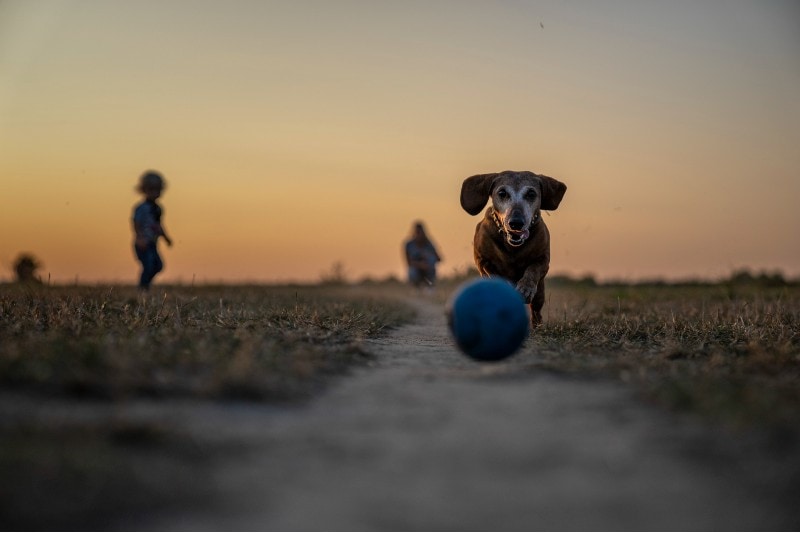
How to Avoid Sunburned Dog Noses
When it comes to sunburn and its lasting effects, prevention is better than a cure. To prevent your dog from getting sunburnt, consider the following steps:
- Avoid Direct Sunlight: The most obvious method to prevent sunburn is to avoid direct sunlight, especially during times when the sun is at its peak. Avoid walking your dog when the sun is directly overhead. If you must walk them, look for shaded areas. For example, down tree-lined paths.
- Get a Dog Sunhat: Yes, they really do exist, and dog sunhats provide a physical barrier that stops UV rays before they reach your pup. While a hat doesn’t usually cover the nose area, it can protect the top of the head and may stop some sun from getting to your dog.
- Create a Shaded Area: If your dog is exposed to sunlight while in your yard or anytime you’re spending prolonged periods outside, ensure that you have some kind of shelter so that they can hide under it for protection.
- Apply Sunscreen: Most of us are accustomed to slathering on sunscreen on particularly sunny days, and the next time you’re putting it on yourself, don’t forget to do the same for your dog. Bear in mind that your dog will probably ingest the sunscreen, so make sure it is safe. Some sensitive sunscreens designed for babies may be safe for your dog, but it is better to opt for one designed for the very purpose of protecting animals.
Conclusion
Sunburn is a very real concern for dogs, especially in areas like the nose and tips of the ears where they have less hair to protect against UV rays. Fortunately, dog sun hats and dog sunscreen are also available and can provide the protection your dog needs. Alternatively, avoid peak sun times and provide your dog with a shelter that will protect them on the sunniest days of summer.
Featured Image Credit: PICNIC-Foto-Soest, Pixabay

